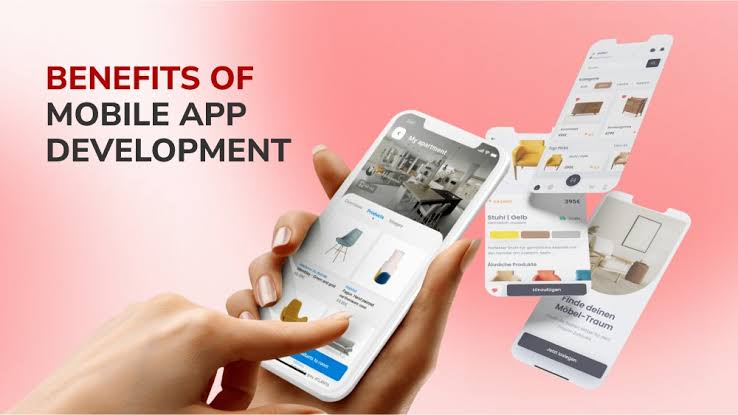In today’s fast-paced world, where work, personal responsibilities, and social commitments often overlap, staying productive is both a challenge and a necessity. One of the most transformative tools for managing time, tasks, and goals is the mobile application. As of 2025, mobile apps are no longer just digital accessories—they have become essential productivity companions for individuals and organizations alike.
Whether you are a freelancer, a corporate employee, a student, or a small business owner, the use of mobile apps can significantly enhance your ability to organize your day, track your progress, and achieve your objectives with greater efficiency and focus.
Instant Access to Tools Anytime, Anywhere
One of the greatest benefits of mobile productivity apps is their portability. These tools allow users to access information, manage schedules, and communicate seamlessly regardless of location.
Smartphones and tablets equipped with productivity apps enable you to:
- Check emails on the go
- Update task lists while commuting
- Participate in virtual meetings from anywhere
- Edit documents and collaborate in real time
This level of convenience ensures that critical tasks aren’t delayed simply because you’re away from your desk. For remote workers and digital nomads, it offers unparalleled flexibility and continuity.
Improved Time Management and Scheduling
Time management is at the core of productivity. Mobile apps like Google Calendar, Microsoft Outlook, and Todoist help users schedule their day effectively, allocate time for tasks, and set reminders for deadlines or appointments.
These apps come with features such as:
- Color-coded calendar events for easier planning
- Push notifications to prevent missed deadlines
- Integration with emails and messaging platforms
- Daily, weekly, and monthly scheduling views
By providing a visual representation of how time is being spent, users can quickly identify time-wasting activities and adjust their routines accordingly.
Task Prioritization and Goal Setting
Productivity apps support structured planning, enabling users to break down larger goals into smaller, actionable steps. This not only makes big projects feel less overwhelming but also boosts motivation by allowing users to track their progress in real time.
Popular apps like Notion, Trello, and ClickUp offer:
- Task boards and progress trackers
- Goal-setting modules with deadlines
- Priority labels and tags
- Checklist creation for daily routines
Such tools ensure that tasks are not only listed but also ranked according to importance, encouraging smarter decision-making and better focus on high-impact activities.
Enhanced Collaboration and Teamwork
For professionals working in teams, productivity apps offer a centralized platform to share updates, delegate tasks, and manage group projects. Instead of relying on scattered emails or physical notes, teams can now operate in real time using synchronized tools.
Key collaboration apps include:
- Slack for real-time messaging and channels
- Asana for project tracking and delegation
- Google Workspace for collaborative editing
- Zoom or Microsoft Teams for virtual meetings
These platforms streamline communication and reduce misunderstandings, ensuring that everyone remains on the same page, regardless of location or time zone.
Automation of Repetitive Tasks
Many productivity apps now include automation features that reduce the time spent on repetitive tasks. By automating routine actions, users free up time for more strategic or creative work.
Examples of automation in productivity apps include:
- Auto-responses in email applications
- Auto-fill templates for reports or proposals
- Integration tools like Zapier or IFTTT that connect different apps
- Smart reminders based on location or time of day
These automated workflows reduce manual input and improve consistency across tasks, allowing individuals to operate more efficiently.
Healthier Work-Life Balance
Ironically, being more productive doesn’t necessarily mean working more hours. In fact, using the right productivity apps can help users gain better control over their time, leaving more space for rest, recreation, and relationships.
With features like:
- Pomodoro timers that encourage breaks
- Digital well-being dashboards to monitor app usage
- Mindfulness and relaxation app integrations
- Goal-setting for personal development and leisure
Mobile apps promote not just efficiency but also balance, ensuring that personal wellness is not sacrificed for professional performance.
Data Synchronization and Cloud Backup
Another powerful benefit of mobile productivity apps is the ability to sync data across multiple devices. Cloud-based platforms ensure that your progress, files, and schedules are not tied to one device and are always backed up for safety.
This feature provides:
- Seamless transitions between phone, tablet, and desktop
- Automatic backup in case of lost or damaged devices
- Real-time collaboration across users and teams
- Peace of mind knowing data is secure and accessible
With everything stored in the cloud, you never have to worry about losing important information or being unable to access your work while traveling.
Personalized User Experience and AI Support
Modern productivity apps are increasingly incorporating artificial intelligence to create a personalized experience. These apps learn from your habits and preferences to offer suggestions, reminders, or smart summaries.
AI-powered features include:
- Smart suggestions for task scheduling
- Habit tracking and analysis
- Natural language processing for note-taking
- Predictive text for faster typing and responding
Such personalized support improves user engagement and makes the app more intuitive over time, which ultimately enhances productivity.
Affordability and Wide Variety of Choices
With thousands of productivity apps available on iOS and Android, users can choose from a vast selection to meet their specific needs. Many top-rated apps offer free versions with essential features, while premium plans are affordable for both individuals and teams.
Categories of mobile productivity apps include:
- Time trackers (Toggl, Clockify)
- Note-taking apps (Evernote, OneNote)
- Project management tools (Monday.com, Basecamp)
- Focus apps (Forest, Focus@Will)
This wide variety allows users to build a custom productivity ecosystem tailored to their goals and lifestyle.
Final Thoughts
In an age where distractions are just a notification away, mobile productivity apps offer a powerful counterbalance. They help individuals stay organized, focused, and aligned with their goals—without needing complex systems or expensive equipment.
The power of these apps lies not only in their features but in how consistently they are used. For anyone serious about improving their daily output, managing stress, or reaching long-term objectives, embracing the right mobile apps is a practical and effective first step.



